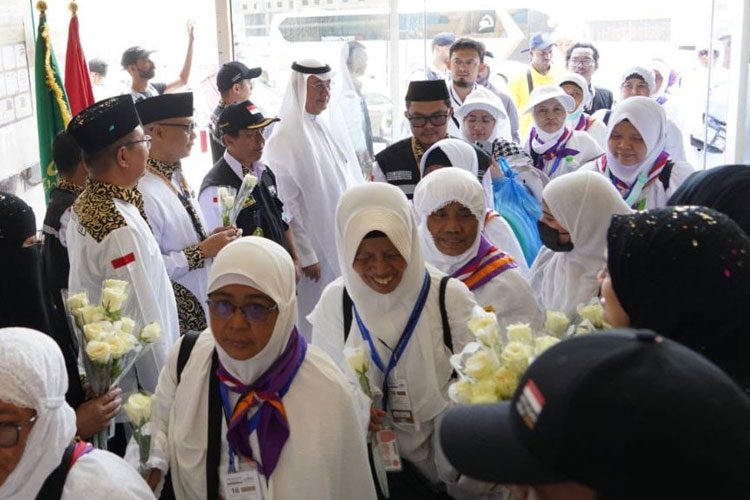Health Scheme for Hajj 2024: Ensuring Elderly Pilgrims' Well-being

TIMESINDONESIA, MAKKAH – The Indonesian Ministry of Religious Affairs (Kemenag RI) is implementing an enhanced health scheme for the Hajj 2024 pilgrimage, emphasizing care for elderly pilgrims.
The initiative, known as the Istithaah Health Service Scheme, was detailed by the ministry's spokesperson, Anna Hasbie, and aims to ensure that all participants, especially the elderly, are in optimal health before embarking on the pilgrimage.
Advertisement
Focus on Elderly Pilgrims
The primary objective of this health scheme is to create a "Elderly-Friendly Hajj," a response to the increasing number of elderly Indonesian pilgrims. As of the latest data, nearly 45,000 pilgrims aged 65 and above are registered for Hajj 2024, representing about 21% of the total regular pilgrim quota of 213,320. This demographic is divided into:
- 34,420 pilgrims aged 66-75 years
- 8,435 pilgrims aged 76-85 years
- 1,835 pilgrims aged 86-95 years
- 55 pilgrims aged over 95 years
Pre-departure Health Requirements
To ensure the well-being of these elderly pilgrims, the health scheme mandates a thorough health check-up before the final payment for the Hajj pilgrimage is made. Pilgrims must meet specific health criteria to be deemed fit for travel. Anna Hasbie highlighted the success of this policy, noting that it helps ensure all pilgrims, despite their advanced age, are healthy enough to perform Hajj rituals.
"Before making the payment, pilgrims must undergo a health examination. If they meet the health requirements, they can proceed with the payment. This effort is to ensure that those who depart are in good health, even if they are elderly," said Hasbie in Jakarta on Saturday, May 25, 2024.
Impact of the Health Scheme
The Istithaah Health Service Scheme has been well-received, with all quotas being fulfilled and additional pilgrims being placed on a waiting list. This proactive health measure ensures that the physical demands of the Hajj do not overwhelm the pilgrims, particularly the elderly who are at higher risk of health complications.
The initiative is part of a broader effort to adapt Hajj services to the evolving needs of the Indonesian Muslim community, which faces long waiting periods for the pilgrimage, thereby increasing the average age of the participants.
Future Prospects
Given the positive reception and apparent effectiveness of the health scheme, it is likely to become a standard model for future Hajj services. This development aligns with the trend of increasing numbers of elderly pilgrims due to the lengthy waiting times.
The Istithaah Health Service Scheme for Hajj 2024 represents a significant step forward in ensuring that all Indonesian pilgrims, especially the elderly, can perform their religious duties in good health and with the necessary support. This scheme not only addresses current needs but also sets a precedent for future Hajj health services, reflecting a commitment to the well-being of all pilgrims.
For more information, follow our updates on TIMES Indonesia and stay tuned for the latest news on Hajj 2024 preparations and developments. (*)
**) Ikuti berita terbaru TIMES Indonesia di Google News klik link ini dan jangan lupa di follow.
| Editor | : Khodijah Siti |
| Publisher | : Rizal Dani |

